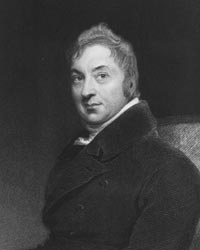
| Born: May 17, 1749 in Berkeley, Gloucestershire |
| Died: Jan 26, 1823 (at age 73) in Berkeley, Gloucestershire |
| Nationality: English |
| Famous For: Smallpox vaccine; Vaccination |
Edward Anthony Jenner, also popularly known as the “Father of Immunology,” was an English scientist known for his discovery of smallpox vaccine. His discovery was a great breakthrough that saved countless lives.
Jenner’s Early Life
Edward was born on May 17, 1749, in Berkeley. He was the eighth of nine children. He attended a school in the Wotton-under-Edge and Cirencester. From a very early age, he was a very keen observer of nature and after nine years working as a surgeon’s apprentice, he joined St. George’s Hospital in London to study surgery and anatomy. Jenner studied under a prominent surgeon named John Hunter. After his studies, he went back to Berkeley where he then set up a medical practice.
Discovery of Smallpox Vaccine
Jenner worked in small rural community where most patients were farmers who owned cattle. During this time, smallpox was a common illness and among the major causes of death. This illness was mainly treated by a method that brought success to Jan Ingenhaus, a Dutch physiologist. The method involved inoculating a healthy person with some substances that came from pustules of people with a mild case of the disease. However, the results were fatal in most cases.
In 1788, a smallpox epidemic hit Gloucestershire. During the outbreak, Edward Jenner observed that some patients who were working with the cattle and had also had contacted cowpox never got affected by the smallpox virus. He needed a way to prove his theory really worked.
In May of 1796, Jenner was finally given an opportunity when one young milkmaid came to see with some blister-like sores on both hands. Jenner was able to identify that the young lady had caught cowpox due to the fact that she handled cows every day. He extracted some liquid from sores of the patient with cowpox. He later used this liquid on a young healthy man. To Jenner’s relief, the young man never caught smallpox, unlike other people.
Jenner’s Rewards
In 1798, after several other successful tests, Jenner finally published his findings in a publication called An Inquiry into Causes plus the Effects of Variolae Vaccine. He called his idea “vaccination,” from vaccinia, which is a Latin word for cowpox. After so much ridicule, other doctors finally found out that the vaccination really worked and by 1800, a large number of them were using it.
His continued works on vaccination prevented him from continuing the ordinary medical practice. He was even granted $10,000 for his great work. In 1806, he was given another $20,000 to continue his work.
In 1805, Jenner joined the Medical and Chirurgical Society. Several years later in 1821, he was appointed to be the Physician Extraordinary to the King George IV. Jenner continued to investigate the natural history and in 1823, he presented his own Observations on the Migration of Birds to the royal community.
Death
Jenner was found in an apoplexy state on January 25th, 1823. The right side of his body was actually paralyzed. He never recovered from this state and he died several months later due to an apparent stroke at 73 years of age on January 26th, 1823.